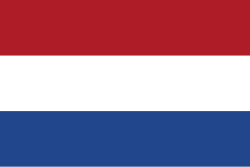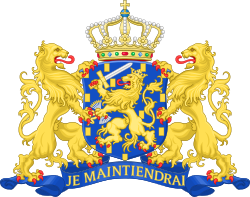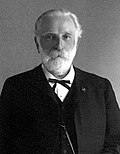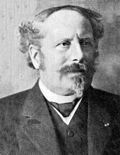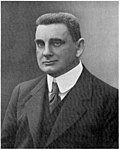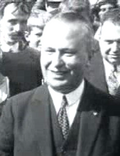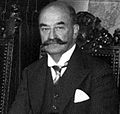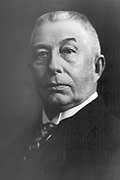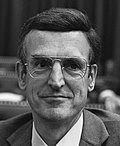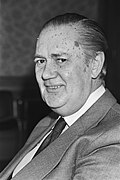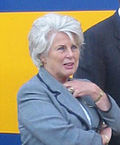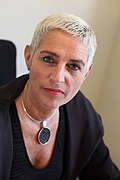Minister of Transport Term of office Party Cabinet Steef van Schaik (1888–1968) 25 June 1945 – Roman Catholic Willem (Schermerhorn– ) [ 25] Catholic Minister of Transport Term of office Party Cabinet Hein Vos (1903–1972) 3 July 1946 – Labour Party Beel I [ 26] Minister of Transport Term of office Party Cabinet Hein Vos (1903–1972) 1 March 1947 – Labour Party Beel I [ 26] Josef van Schaik (1882–1962) [Deputy] 7 August 1948 – [Acting] [Minister] Catholic Drees– [ 27] Derk Spitzen (1896–1957) 1 November 1948 – Independent Christian Democratic Hendrik Wemmers (1897–1983) 15 March 1951 – Independent Christian Democratic Drees I [ 28] Jacob Algera (1902–1966) 2 September 1952 – [Res] Anti-Revolutionary Drees II [ 29] Drees III [ 30] Herman Witte (1909–1973) 10 October 1958 – [Ad Interim ] [Minister] Catholic Jan van Aartsen (1909–1992) 1 November 1958 – Anti-Revolutionary Beel II [ 31] Henk Korthals (1911–1976) [Deputy] 19 May 1959 – [Minister] People's Party De Quay [ 32] Jan van Aartsen (1909–1992) 24 July 1963 – Anti-Revolutionary Marijnen [ 33] Ko Suurhoff (1905–1967) 14 April 1965 – [Note] Labour Party Cals [ 34] Pieter Bogaers (1924–2008) 1 May 1966 – [Acting] [Minister] Catholic Ko Suurhoff (1905–1967) 30 June 1966 – Labour Party Dr. Jan de Quay (1901–1985) [Deputy] 22 November 1966 – Catholic Zijlstra [ 35] Joop Bakker (1921–2003) [Deputy] 5 April 1967 – [Minister] People's Party De Jong [ 36] Dr. Willem Drees Jr. (1922–1998) 6 July 1971 – [Res] Democratic Biesheuvel I [ 37] Biesheuvel II [ 37] Bé Udink (1926–2016) 21 July 1972 – [Minister] Christian Tjerk Westerterp (1930–2023) 11 May 1973 – Catholic Den Uyl [ 38] Dany Tuijnman (1915–1992) 19 December 1977 – People's Party Van Agt I [ 39] Henk Zeevalking (1922–2005) 11 September 1981 – Democrats 66 Van Agt II • III [ 40] [ 41] Neelie Kroes (born 1941) 4 November 1982 – People's Party Lubbers I • II [ 42] [ 43] Hanja (born 1943) 7 November 1989 – [Res] Christian Lubbers III [ 44] Dr. Koos Andriessen (1928–2019) 16 July 1994 – [Acting] [Minister] Christian Annemarie (born 1950) 22 August 1994 – People's Party Kok I [ 45] Tineke Netelenbos (born 1944) 3 August 1998 – Labour Party Kok II [ 46] Roelf de Boer (born 1944) [Deputy] 22 July 2002 – Pim Fortuyn List Balkenende I [ 47] Karla Peijs (born 1944) 27 May 2003 – Christian Balkenende II • III [ 48] [ 49] Camiel Eurlings (born 1973) 22 February 2007 – Christian Balkenende IV [ 50] Minister of Infrastructure Term of office Party Cabinet Melanie Schultz (born 1970) 14 October 2010 – People's Party Rutte I • II [ 51] [ 52] Minister of Infrastructure Term of office Party Cabinet Cora van (born 1963) 26 October 2017 – [Res] People's Party Rutte III [ 53] Barbara Visser (born 1977) 31 August 2021 – People's Party Mark Harbers (born 1969) 10 January 2022 – People's Party Rutte IV [ 54] Barry Madlener (born 1969) 2 July 2024 – [Res] Party for Freedom Schoof [ 55] 
